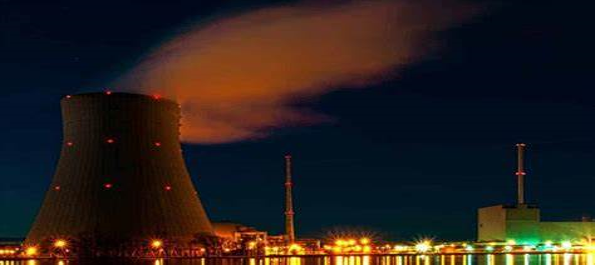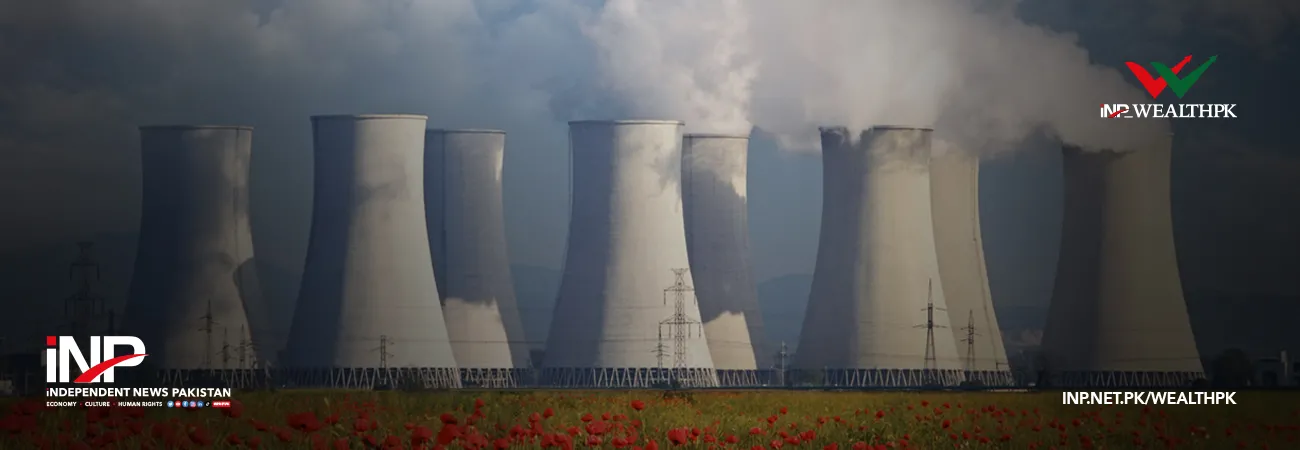INP-WealthPk
Amir Saeed
The pressing need for reliable and stable energy sources has made nuclear power a promising option, underscoring the need to attract private-sector funding to support these initiatives and lessen the strain on the government treasury.

Talking to WealthPK, Tauseef Farooqi, former chairman of the National Electric Power Regulatory Authority (Nepra), said that nuclear energy has many benefits that can draw funding from the business sector. “It provides stable baseload generation with low and predictable generation costs, ensuring energy security for the country.” “Additionally, the long operational lifespan of nuclear plants enhances their attractiveness to investors, as they can expect a steady return on investment over time. Nuclear energy also provides supply security with extended fuel contracts, which enhances the reliability of the system,” Farooqi noted. He maintained that nuclear energy’s appeal was further strengthened by its minimum land use requirements and comparatively low regional restrictions. “Because of this flexibility, nuclear reactors can be strategically located, which can be very helpful in meeting the energy needs of the surrounding areas.”
“Furthermore, nuclear is now a feasible alternative for urban and rural locations due to the possibility of Small Modular Reactors (SMRs) to eliminate present and future energy market shortages,” the former Nepra chairman noted. Farooqi suggested the government should explore financial avenues to successfully draw in private sector investment. “A variety of funding options are available, including bank loans, private equity, green bonds, and offtake contracts (power purchase agreements, capacity investment deals, etc.).” “The government should establish a strong foundation for nuclear energy development to eventually pave the path for a sustainable energy future by cultivating alliances with private investors and utilising cutting-edge financing methods.” However, Afia Malik, an energy expert at the Pakistan Institute of Development Economics (PIDE), highlighted that there were many obstacles in the way of funding nuclear plants.
Speaking to WealthPK, she said: “The size of the initial expenditure needed is one of the biggest obstacles. Nuclear energy projects generally demand substantial upfront capital, which can be a deterrent for private investors apprehensive of the long-term nature of these investments.” “The complexity of the development and construction phases adds to this challenge. Uncertainties related to the completion of projects and overall construction costs deter potential investors, leading them to look for more predictable and less risky ventures,” he noted. “Another major challenge is developing a nuclear-specific supply chain and skilled workforce. Because nuclear technology is so specialised, it needs a strong supply chain to meet the particular needs of the sector,” Afia stressed.
“A lack of qualified experts in nuclear engineering, safety, and operations can further impede project advancement and effectiveness, which makes it more difficult to draw in private funding.” “The lengthy and complex laws and regulations pose significant challenges to the nuclear sector. Navigating the complex regulatory environment results in delays and higher expenses, which deters private investment. Simplifying these regulatory procedures is essential to creating an atmosphere that is more favourable for the private sector to invest in nuclear energy projects,” the PIDE energy expert suggested.
Credit: INP-WealthPk













